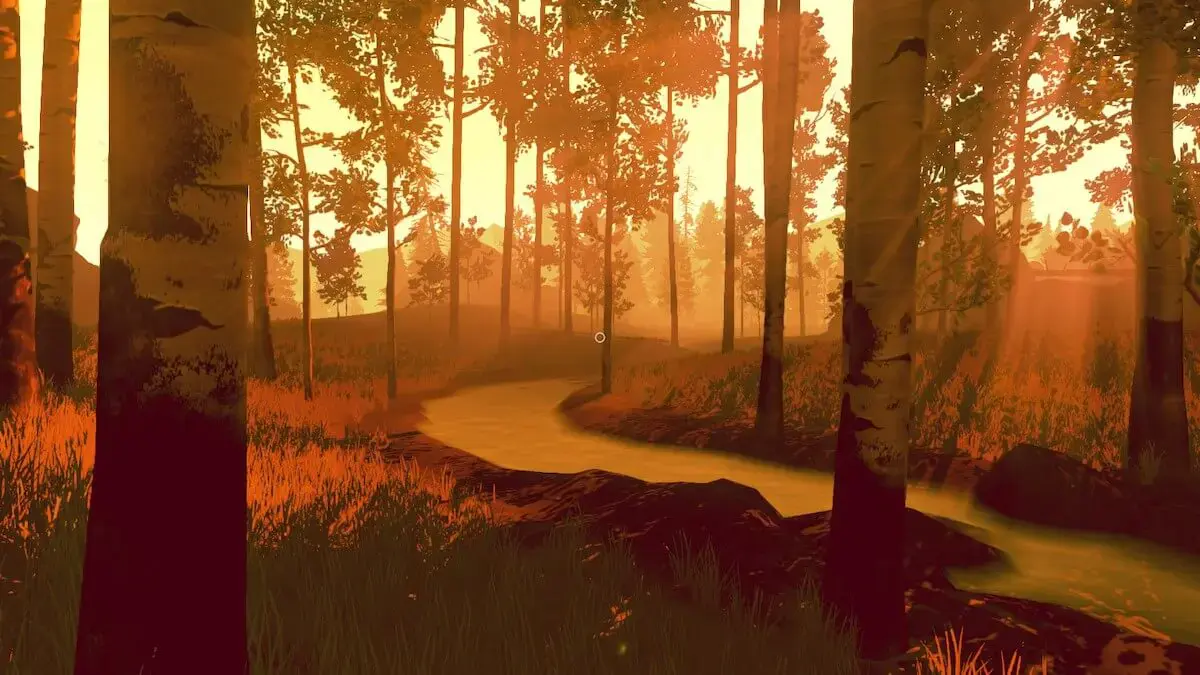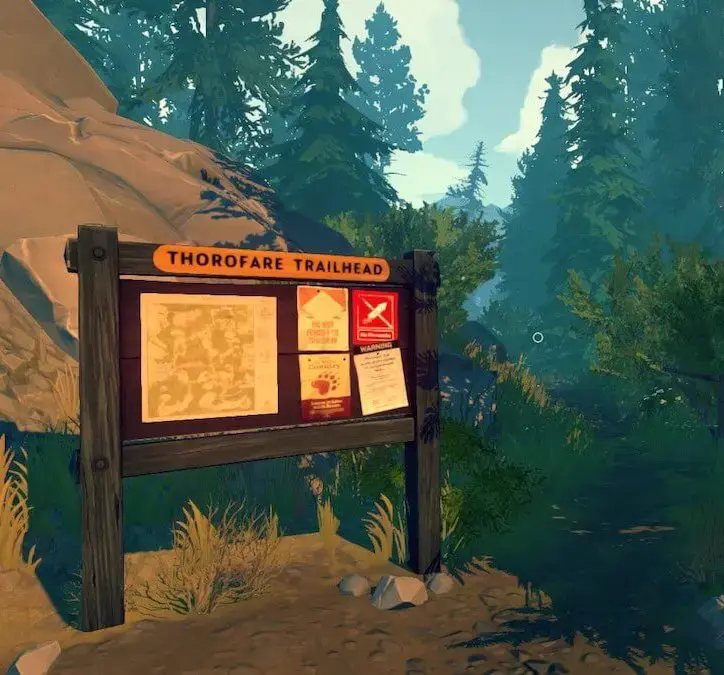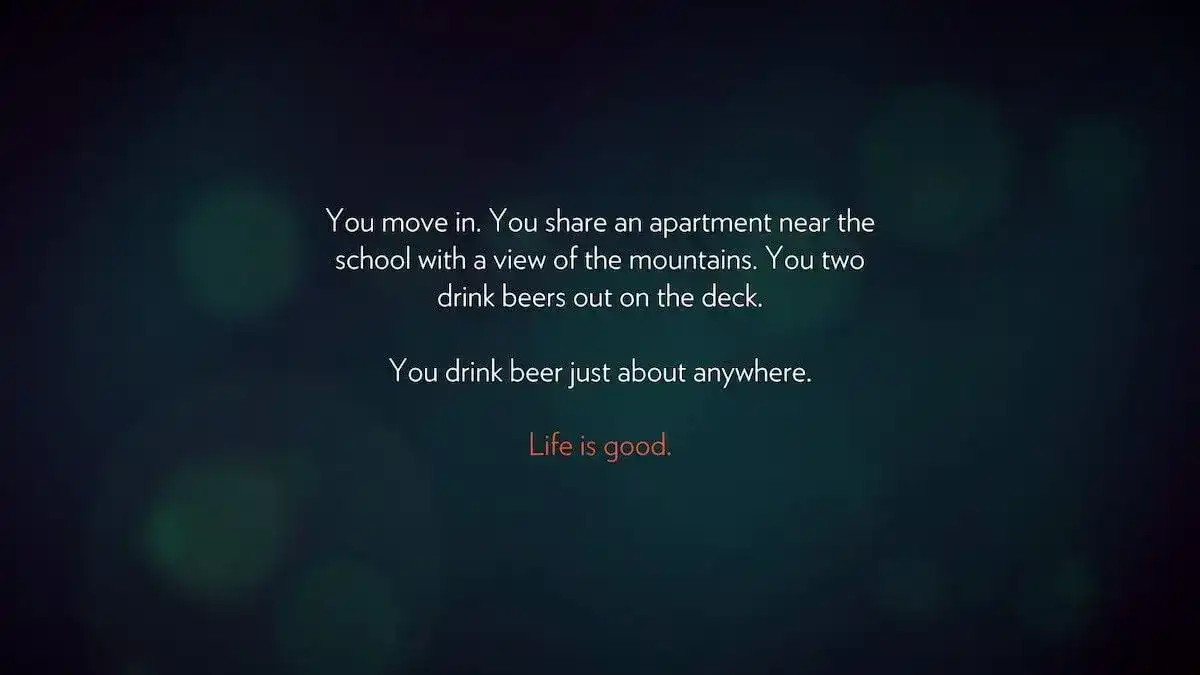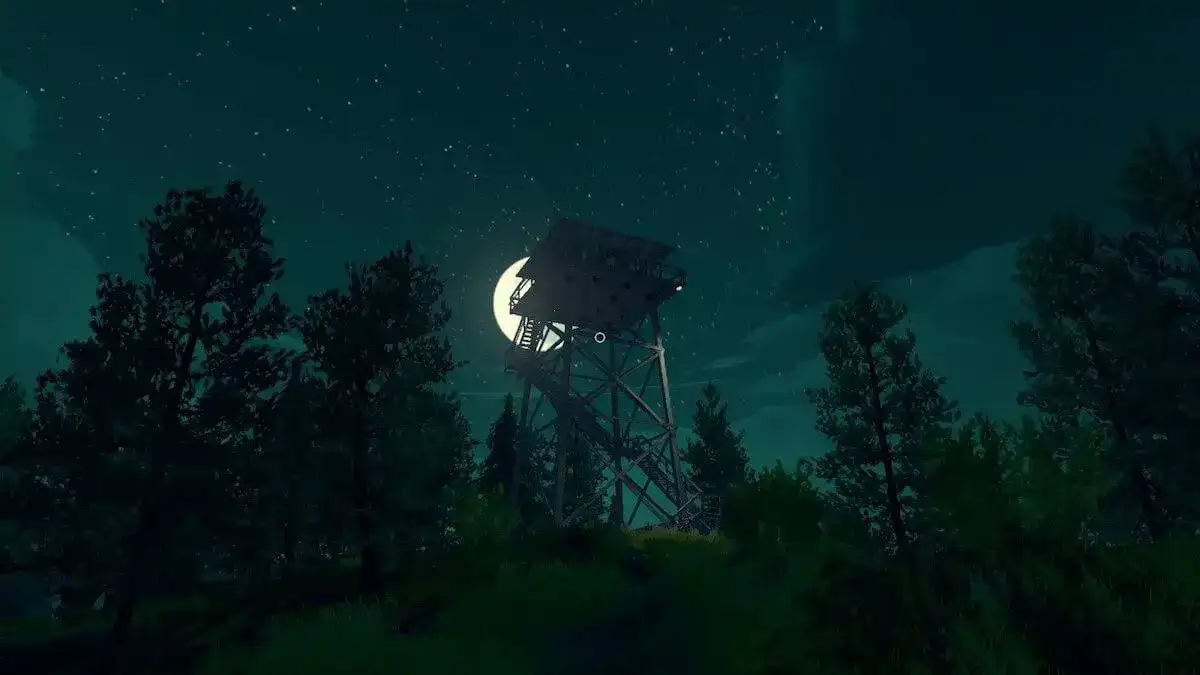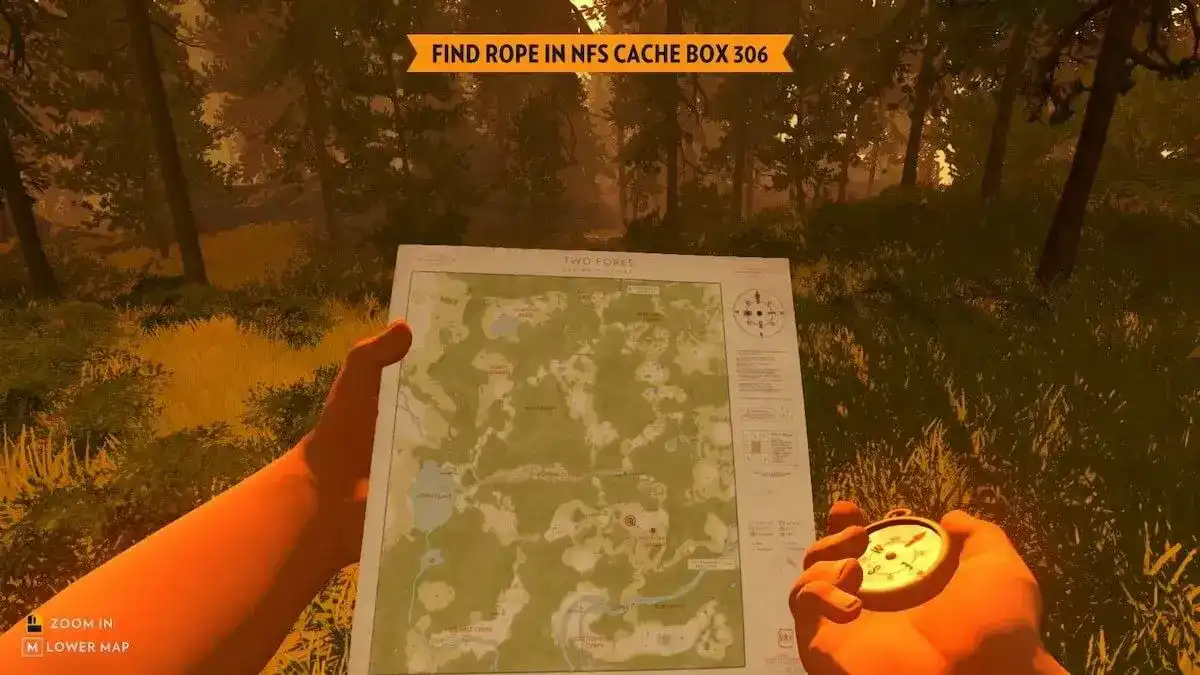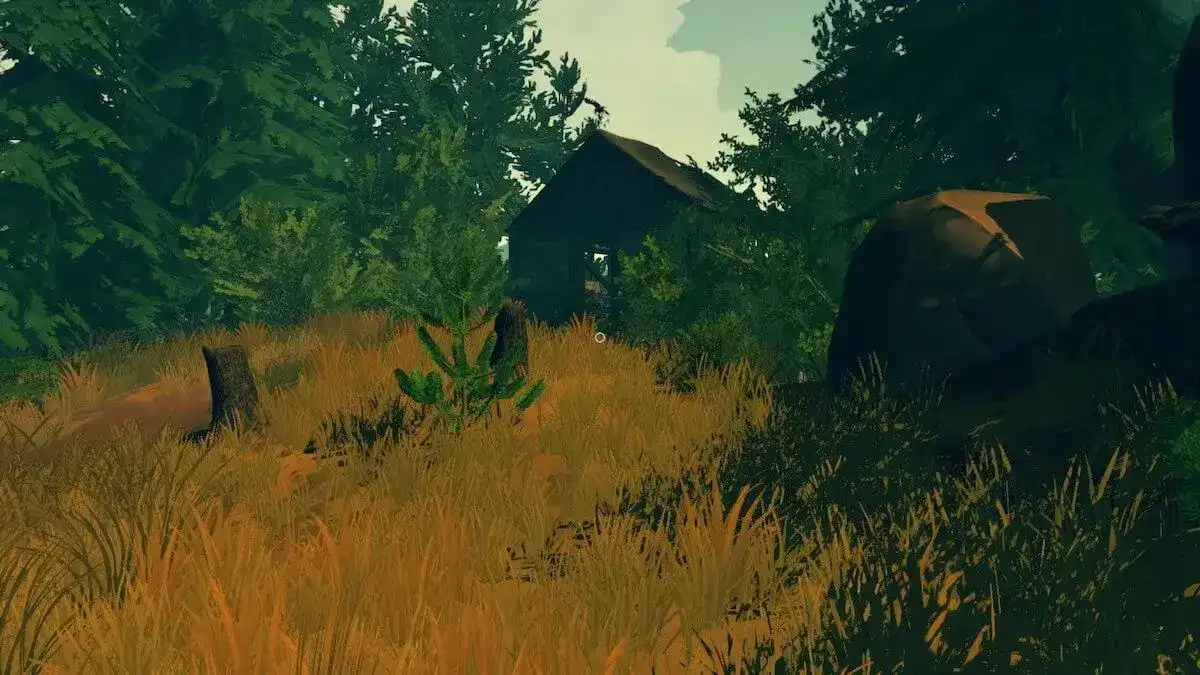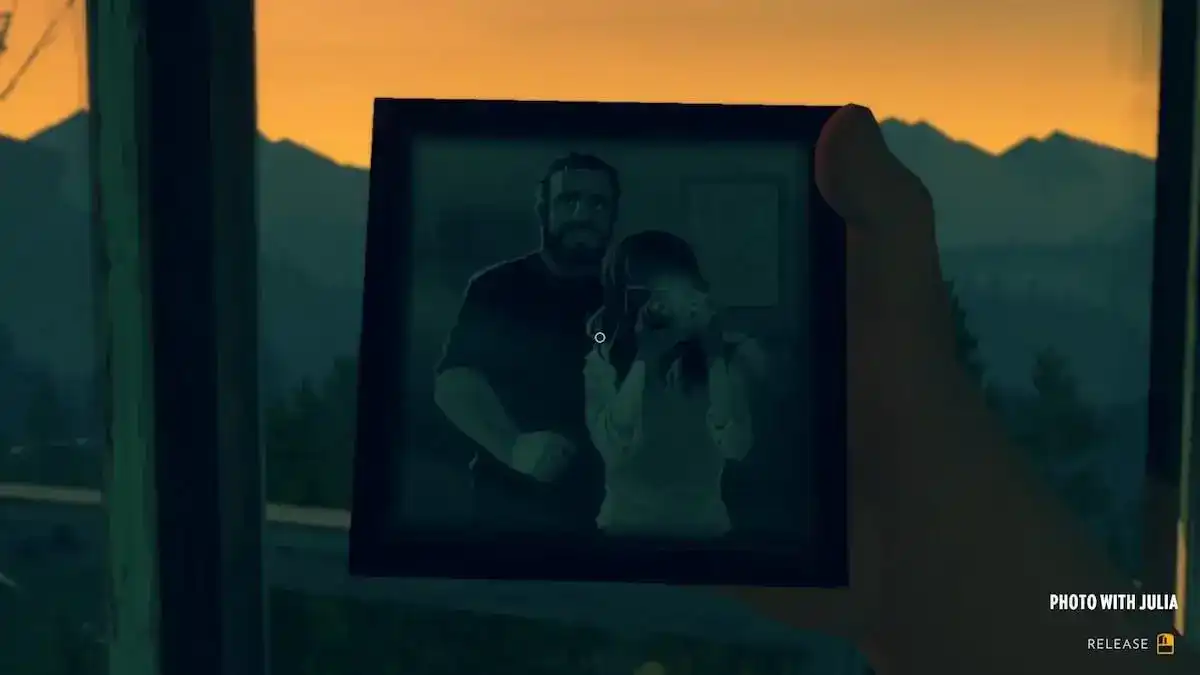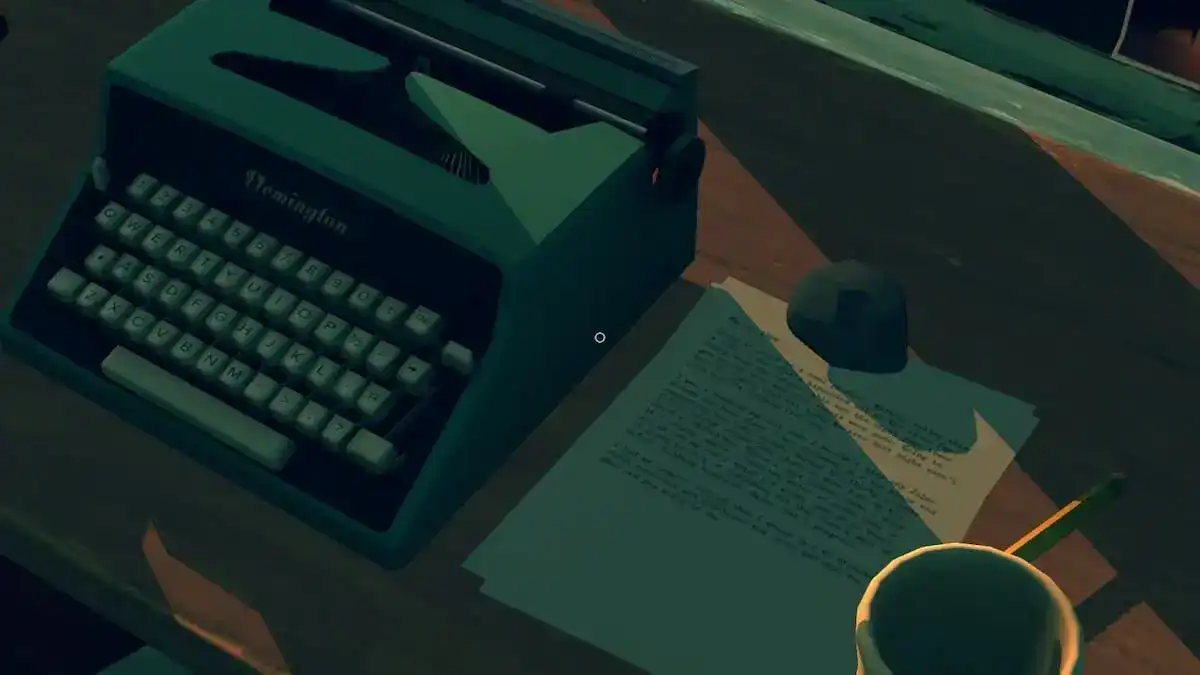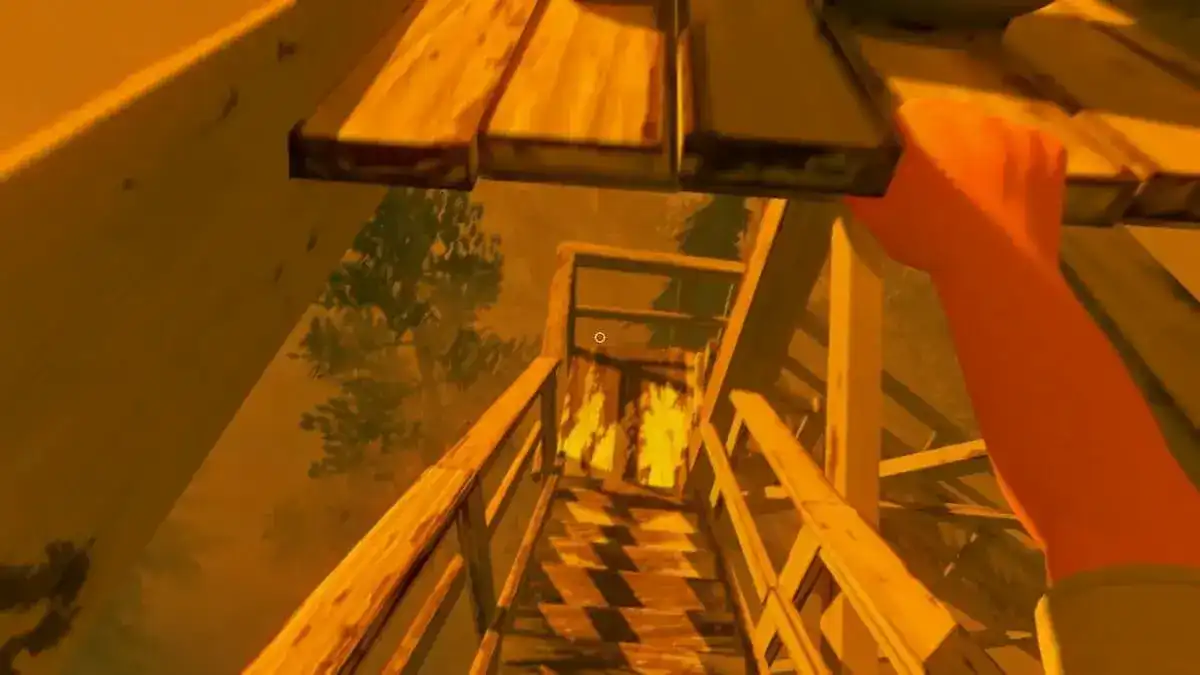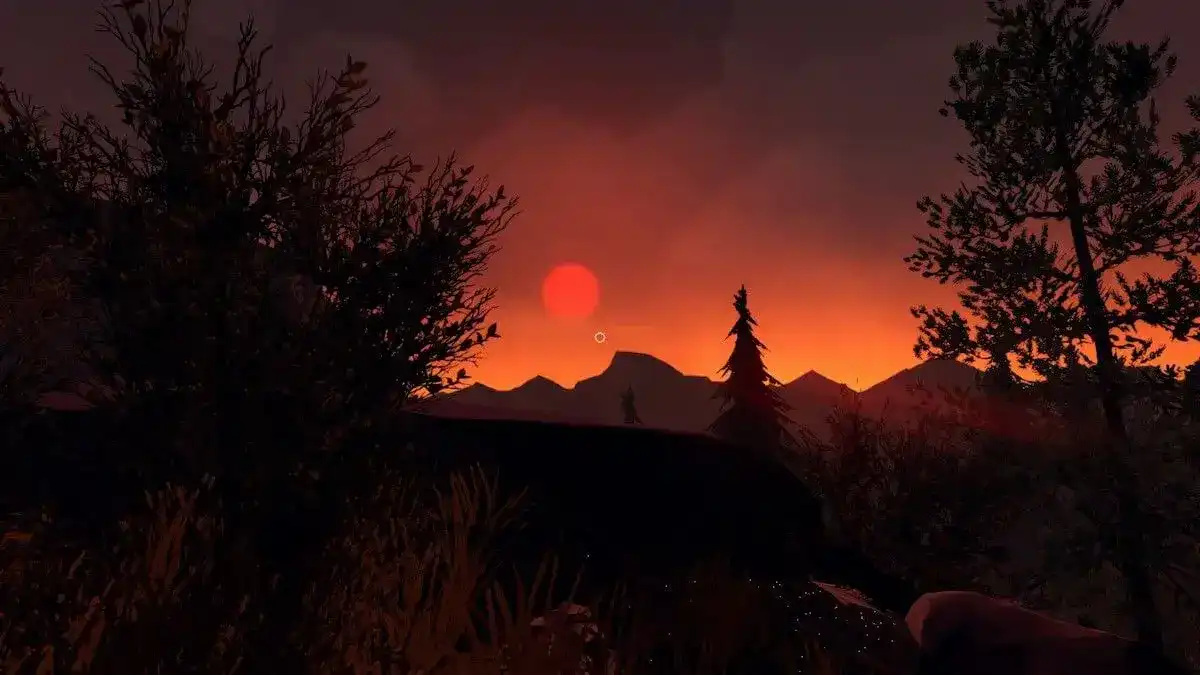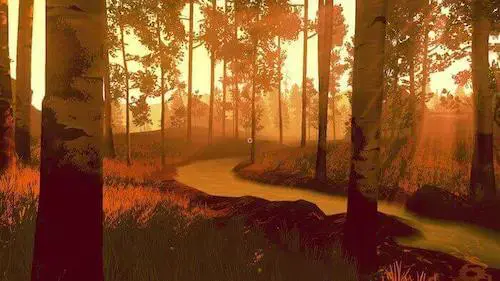Anyone who knows me knows that I love a good slice-of-life story.
They're real (and no, not always in the "realistic" sense); they tend to supply the audience with uncomfortable truths and remind us that our lives do not always go according to plan, no matter how hard we push for the most desired outcome.
Most importantly, they show us that we're not alone in our failings and misfortunes. That we, as people, are not perfect, and not everything is as it seems.
Campo Santo's Firewatch does all these things and more as it gives you a front-row seat to a Colorado man's summer filled to the brim with visual awe, beckoning mystery and the woefully unexpected.
Humble Beginnings
In the spirit of the unexpected, I thought it'd be appropriate to share my thoughts on the game's opening section, which was told almost entirely through text-based interactions.
As a fan of first-person adventure titles, it was an immediate surprise for me to be presented with, well, anything that wasn't already set in the first-person perspective! Instead, in the game's first few moments, Firewatch presents the player with the opportunity to imagine the recollected history of its playable character, Henry. A hazy, colorful background indicates the location and year you are currently in — Boulder, Colorado, 1975 — and a swift click to the next screen tells you, in such sweet, plain words, "You see Julia."
She's your future partner, and this is the game's way of giving you the chance to live through that journey as if you were truly there yourself, wherein you learn more about her, yourself, and what your relationship with Julia is like as the years go by. In this section, you are also able to make small choices that determine, say, whether or not you two owned a Beagle or a German Shepard. Others may have more personal weight, and allow you to dictate if you, for example, send Julia to a home to be treated for her sudden early onset dementia or take care of her yourself.
All this seamless exposition is coupled with bits and pieces of you playing as Henry in the first-person, taking your first of many hikes in the Shoshone National Forest, Wyoming where you will work as a fire lookout for the summer.
I had been so used to playing similar titles that usually throw you, the player, headlong into the world within the first 5 minutes, that I had entirely forgot what it had been like to play a game that didn't supplement its backstory with some sort of high-budget cut scene or wall of text.
Firewatch had done a lot to surprise me from the very beginning, and I was thoroughly excited to not only play more, but to learn more.
It is revealed that after Henry agrees to let Julia's parents take her back home to Melbourne, Australia to get her the support she needs, he takes the summer job as a fire watch at Two Forks Lookout to get away from the guilt he feels for failing to take care of his wife.
Following Henry's two-day hike to his new position as the fire watch, he finally arrives at his new home base at Two Forks Lookout. There, he has his first conversation with Delilah, his supervisor at the neighboring watchtower Thorofare Lookout. Equipped with only his trusty walkie-talkie, Henry's only source of contact throughout the game is an otherwise complete stranger with a past as mysterious as the forest the two are expected to watch over.
Are We There Yet?
A majority of the game consists of Henry taking long treks to respond to various incidents that occur in the forest. As the player, you will be spending a lot of time walking and/or running to and from new and old places alike. Granted, you will also be doing your fair share of climbing and rappelling from large rocks, but that is usually all done with the click of a single key. It is worth noting that while the game's story is fantastic, actual gameplay is quite minimal here.
There is no combat whatsoever, there are no quick-time events where you have to press keys in a certain order, and, frankly, there isn't even any puzzles to complete.
The game's sense of repetition coupled with so little to actually do, other than go here or go there gameplay, may leave some gamers with more to be desired.
With that being said, what Firewatch does have to offer is more than worthy of consideration and rewards players for doing the very thing it doesn't deliberately tell you to do: exploring. And in more ways than one.
Exploration Is Its Own Reward
There is no formal reward system for exploring beyond the places Delilah tells you to report to, but there is something truly thrilling about coming across something you "weren't supposed to find" along the way.
On Henry's second day on the job, Delilah asks him to investigate a downed communication line to find out what happened to it. The task was simple enough, especially since about halfway, all you needed to do was follow the power lines to get there. However, it was at that halfway point where I noticed a destroyed outhouse by the side of the trail, of which I basically flipped upside-down in the efforts to discover what happened to it. Then I found it.
My incessant rummaging had revealed lyrics to a song titled Ol' Shoshone, scribbled neatly on a piece of yellow notepad paper. There was no name, but you can sure as hell tell from the way it was written that someone really cared about the words on that page. I could almost hear it, even though the voice was uncertain.
Not far past that same outhouse was an abandoned cabin where the wind whistled louder and louder the closer you got to it. Once opened, the cabin door caved in and fell, revealing its scorched-black innards and a gaping hole where the rear side of the cabin used to be. The back was blown clean out, and through it, you can see far off into the rest of the lush, verdant forest. To the left was a set of stairs, leading to some sort of basement.
The stairs creaked with each step. The whistling stopped as I made it to the final landing and there it was: a beautiful acoustic guitar. Brand spanking new. Kind of like someone just left it there. Forgotten, somehow. I like to believe it belonged to the same mystery man that wrote those lyrics. But who knows? I was never truly told to go there in the first place. Not a single quest marker or objective led me to that spot. Just me and my overwhelming curiosity and boundless imagination.
The game does not ever give you clear answers to much of anything you see in its world. And that's the fun of it. A good game presents you with something cool and tells you what you want to hear. A great game, on the other hand, presents you with the same cool something and keeps you guessing.
What happened here in Ol' Shoshone is ultimately up to you.
Patterns of Play (And People)
While exploring the vast wilderness handling day-to-day tasks, Delilah frequently speaks to Henry via walkie-talkie. Its during these conversations that the player gets to know Delilah, and since the game maintains a first-person perspective throughout, the player inadvertently feels that much more connected to her as a character. This is further supported by the game's light, choice-based gameplay where, in conversations with Delilah, the player has the option to choose one of (typically) three responses. The response you make determines the flow of conversation as well as how Delilah will react in that given moment.
From the very beginning, Delilah's personality is firmly established and is unwavering throughout. She is funny, relatable, caring, snarky, and everything Henry needs at this time in his life. He is sad, guilty, lonely, and in desperate need for emotional support from somebody who is willing to listen. What stood out most to me was just how consistent both Henry and Delilah's personalities were at all stages of the game. The game is, of course, only 4 or so hours long (spanning over the course of 79 days), but that is still a lot of time for characters to potentially shift in a negative way, so I applaud the game for maintaining the spirit of its main protagonists throughout.
There was never a time where I felt, say, Delilah's smart-alecky comments were out of place or jarring in any way. Its who she was, just in the same way that Henry was just as unsure about himself when he first arrived at Two Forks as he was halfway through the summer.
While we're on the topic of consistency, I must admit that I was a huge fan of the game's innate repetition. Seeing the same beautiful sights while on my way to find something new, referring to my map every few feet because I am worried I'll get lost, and even watching Henry grab the boarding on his way down the tower every single in-game day.
There even comes a point where you start to memorize the area like the back of your hand, and you become that much more one with the world. You begin to truly feel like you're more than just someone playing a fire watch. By the time the credits roll, you are the fire watch.
An Ending Worth Exploring
It has quickly become apparent to me that I can go on and on about Firewatch and the many reasons, big and small, that make it so worth playing.
However, it is, unfortunately, a short experience, but one that I wouldn't want to ruin by making any longer just for the sake of it. Without giving too much away, I believe the game's pacing was truly remarkable throughout. However, by the time I reached the ending, I personally felt as though I was getting too many answers all at once, and way too conveniently. Firewatch builds a ton of tension by the end, but it seems to let a majority of that tension fizzle within its (literal) final hour.
I understand that with games like these, stories should be concise and to-the-point, but I feel that a game like Firewatch deserved more than the hard-and-fast truth it worked so hard to keep under wraps for so long.
The Road Not Taken
With that being said, Firewatch is still one of the best adventure games I have played in quite some time. Just about everything comes together to allow this game to be what it is: a mini-masterpiece in modern storytelling. Its memorable. Its beautiful. It calls out to you to explore it, to uncover its many secrets and untold stories that lay right under your nose. Its quiet, while at the same time being so loud in its presentation.
The people feel real. Their problems felt real. Their stories rang as true as anybody else's, and they felt like people I already somehow knew. They tell and, many times, show the audience that their past still follows them at every turn. Just as how Henry and Delilah have their own pasts they run away from, the very same place they have both run to has its own history it'd rather leave behind.
Even as I write this, I still fondly recall every notable place, every winding path and every boulder I forced myself to climb, knowing a little piece of me was there every step of the way. With every path I came across (and to lightly reference Robert Frost here), I always took the one less traveled by.
And for anyone who's asking...
Yes. That, in fact, has made all the difference.
